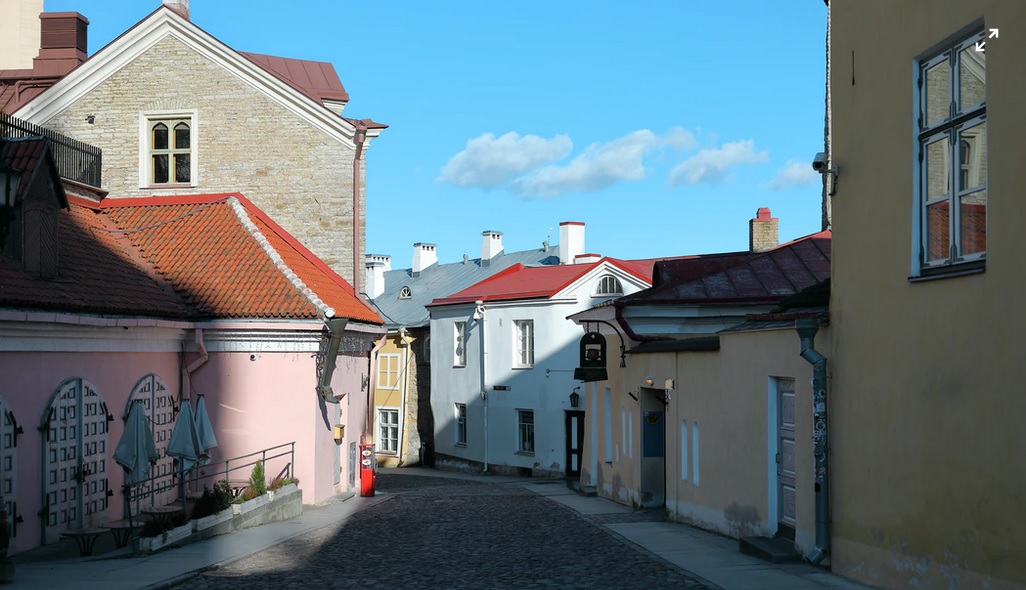From Monday, arrivals in Estonia from Iceland, Portugal and Spain do not have to self-quarantine. These three are joined by Ireland, whose 14-day coronavirus rate per 100,000 inhabitants has also dropped below the 150 threshold, meaning arrivals from that country do not have a quarantine requirement applied ot them either..
Four countries have dropped off the arrivals quarantine exemption list since last week: Denmark, Germany, Liechtenstein and Norway, after their 14-day rate exceeded the ceiling in the past week, so arrivals from those countries must now quarantine.
Travelers from all other European countries must quarantine for 10 days on arrival (see below for exemptions for arrivals from Lithuania and Latvia, and the stricter regime for arrivals from the U.K.).
The restrictions apply for the week March 22-28.
The spread of new coronavirus variants has caused the situation to change rapidly, the Ministry of Foreign Affair said in a press release Friday, and, accordingly, other states are imposing measures to control the spread of the illness at short notice (including restrictions on movement, changes to conditions for border crossing, mandatory tests and testing).
The rapid introduction of these measures means that the options for traveling abroad as well as for returning to Estonia can change suddenly, so the ministry strongly advises the public to assess whether traveling is absolutely essential, look up travel advice on the destination and any transit countries, and in addition to other vital information, make sure people are aware of the conditions for entering and leaving the country in question.
A 10-day restriction on the freedom of movement applies on entering Estonia from a country in the EU, EEA and the Schengen area with a reported COVID-19 infection rate above 150 persons per 100,000 inhabitants in the past 14 days.
A list of European countries’ infection rates is shown below, with those countries whose arrivals must quarantine for the period March 22 to March 28 in bold.
- Andorra 442.4
- Austria 388.3
- Belgium 328.4
- Bulgaria 453.4
- Croatia 199.8
- Czech Republic 1518.3
- Cyprus 556.8
- Denmark 161.1
- Finland 167.8*
- France 468.9
- Germany 154.8
- Greece 280.3
- Hungary 934.2
- Iceland 15.1
- Ireland 144.0
- Italy 499.4
- Latvia 398.1*
- Liechtenstein 302.0
- Lithuania 223.5*
- Luxembourg 391.6
- Malta 693.4
- Monaco 456.4
- Netherlands 402.9
- Norway 175.8
- Poland 542.1
- Portugal 92.8
- Romania 303.1
- San Marino 635.6
- Slovakia 532.0
- Slovenia 489.3
- Spain 146.6
- Sweden 545.9
- Switzerland 220.5
- Vatican 0.0**
*Based on Order No 282 of Government of Estonia, the restriction on the freedom of movement does not apply to asymptomatic people who have been on the territory of Lithuania, Latvia or Finland in the past 10 days and have travelled to Estonia directly from Lithuania, Latvia or Finland with the following preconditions:
1) The person has taken a coronavirus test no earlier than 72 hours before their arrival in Estonia and the result is negative, or they have taken the test immediately after their arrival in Estonia and the result is negative. The passenger is required to remain in isolation while waiting for the test result.
(2) They arrive in Estonia for the purpose of working, studying or receiving health services or for family reasons or transit. Passengers arriving in Estonia for the reasons listed above are not obligated to test for coronavirus.
**While the Vatican has a zero reported COVID-19 rate, since arrivals will in practice have passed through the territory of Italy, they also have to quarantine in on arrival Estonia.
Estonia’s infection rate was as of Saturday 1,531 per 100,000 inhabitants, reportedly the highest in Europe, according to WHO.
Arrivals from the United Kingdom
Passengers arriving in Estonia from the United Kingdom are subject to an additional obligation to test for COVID-19 up to 72 hours before their arrival in Estonia, and the result must be negative. The test is not compulsory for children under the age of 12. A 10-day period of restrictions on movement is also mandatory for passengers arriving from the United Kingdom. The rule applies even in cases when the passenger has only transited through the United Kingdom on their way to Estonia. The period of restrictions on movement can be shortened if in addition to the first negative test, a second test taken 7 days after arrival is also negative.
Self-isolation is not required for anyone who has:
(1) suffered from COVID-19 and no more than six months have passed since they have been declared cured;
(2) have undergone COVID-19 vaccination and no more than six months have passed since its completion.
Reducing self isolation
The following rules apply to reducing the period of self-isolation both when arriving from Europe and other regions, except for third country nationals arriving in Estonia for work or studies:
(1) Anyone unwilling to self-isolate for 10 days after their arrival in Estonia can take a PCR test abroad no earlier than 72 hours before their arrival in Estonia. While in Estonia, a second test can be taken no earlier than on the sixth day after the first test. The 10-day isolation period can be concluded earlier if both tests are negative.
(2) Anyone who has not taken a test up to 72 hours before their arrival in Estonia can take one immediately after their arrival and the second test no earlier than six days after their first test. The 10-day isolation period can be concluded earlier if both tests are negative.
Information about the conditions that apply to the test certificate is available HERE. For booking a second test, passengers can contact the call centre for public testing (678 0000).
Details about testing are available here.
Arrivals from third countries
It is possible to travel to Estonia from Australia, New Zealand, Rwanda, Singapore, South Korea, and Thailand.
A 10-day self-isolation is mandatory for passengers arriving from countries with an infection rate above 16 people per 100 000 inhabitants in the past 14 days.
Other third country nationals arriving for work or for studies are subject to the 10-day mandatory self-isolation. They must take a coronavirus test immediately after arriving in Estonia and a second test no earlier than six days after the first test. Testing does not grant the right to stop self-isolating before the mandatory period ends.
In cases where travelling from Estonia to another state is essential, the Estonian foreign ministry recommends:
- Consulting the Foreign Ministry’s website for the infection rate in the planned country of destination;
- Consulting the Reisi Targalt website (in Estonian), the ReOpen portal of the European Union, or contact the representation of the country for more details;
- Registering your trip at the Foreign Ministry’s Reisi Targalt website (in Estonian) to allow us to notify you of possible travel restrictions;
- Following the recommendations of the Health Board (Terviseamet) to ensure a safe flight; if you display potential COVID-19 symptoms, please postpone your trip and contact your GP;
- Taking out travel insurance and carefully read the conditions of your insurance (including for travel interruptions caused by COVID-19);
- Following the instructions of local authorities and keep up to date with possible new restrictions in the destination state.
Upon returning to Estonia from abroad, the ministry recommends:
- Filling out a declaration when crossing an Estonian border (this is mandatory), which can be done electronically. The declaration can be completed 24 hours before arriving in Estonia on the state self-service portal here. Retain the confirmation email you will receive after you have completed the form. The declaration can also be filled out on paper.
- On returning, follow the current rules in Estonia, and if you suspect you have been infected with the corona virus, contact your family doctor.
The spread of new coronavirus variants has caused the situation to change rapidly, the ministry says, and accordingly, states are imposing measures to control the spread of the illness at short notice (including restrictions on movement, changes to conditions for border crossing, mandatory tests and testing).
The rapid introduction of these measures means that the options for travelling abroad as well as for returning to Estonia can change suddenly. The ministry strongly advises assessing whether travelling is absolutely essential, looking up travel advice for the destination and transit countries, and in addition to other vital information, ensuring awareness of conditions for entering and leaving the country in question.
The national helpline for additional information on the coronavirus and restrictions on the freedom of movement is 1247 (this is also the general national information line, and can be reached on +372 600 1247 when calling from abroad.
Featured image: Unsplash


